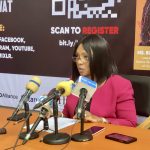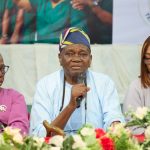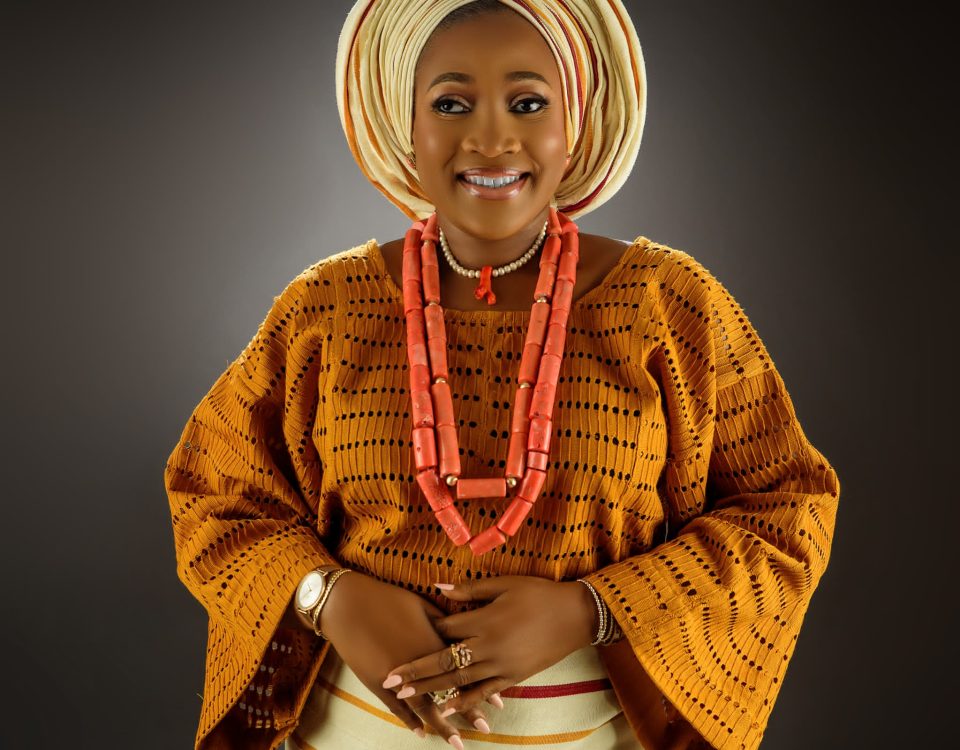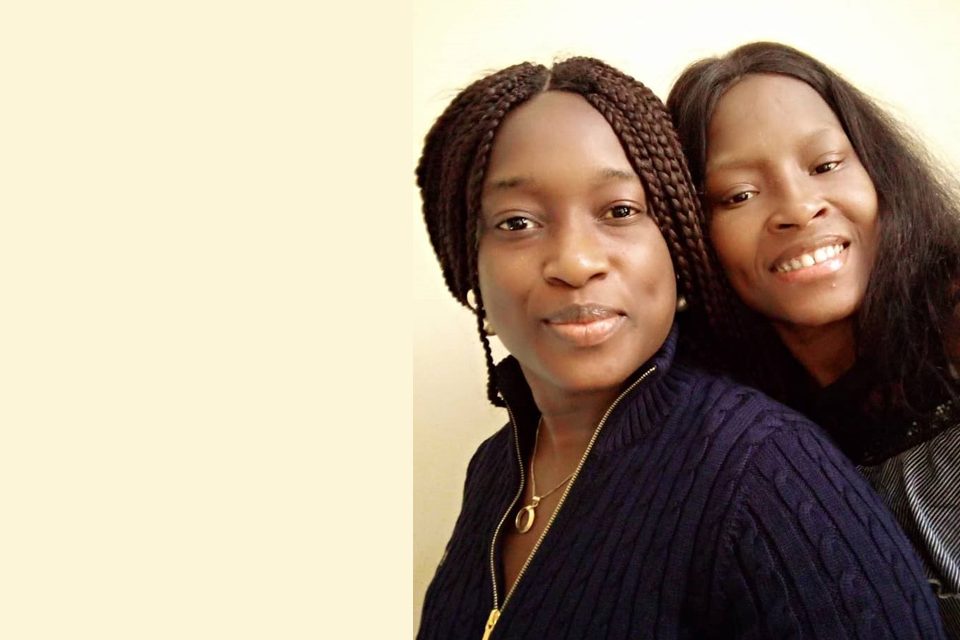A CHAT WITH MR. OLUFUNSO SOBANDE

COMMUNIQUE FROM THE VIRTUAL TOWN HALL MEETING ORGANISED BY SICKLE CELL FOUNDATION NIGERIA TO MARK THE 2024 WORLD SICKLE CELL DAY
June 21, 2024
Sickle Cell Foundation Nigeria Achieves Groundbreaking Bone Marrow Transplant
November 7, 2024
It was one of those days in Lagos when the traffic demons escape from their dungeons and visit the streets of Lagos with no good intentions. Yes, the demons were on the rampage and, on such days, practically every commuter gets frustrated and short-tempered. Not all the members of the Editorial Board could make it to the meeting on time.
It had been planned to have a chat with Mr. Sobande after the meeting. He was, no thanks to the traffic situation, late by about a quarter of an hour. But that was not the problem. Alas, the traffic situation had left its tell-tale marks on him as well as the members of the Board. A chat was definitely not on the cards. No, not that day!
It was therefore readily agreed to postpone the chat to another day. Saturday, the 19th of October at 12 noon was comfortable for all.
The weather was fine and the birthday and wedding parties seemed to have agreed to spare us the ordeal of week-end traffic congestions. Or, maybe, we chose the right time.
Mr. Sobande walked into the Board Room where the Sickle Cell Bulletin team was already waiting. A few pleasantries set the pace for the interview and we got down to business.
Please enjoy excerpts of our chat with Mr. Sobande, a Sickle Cell Champion!
SCB Team: Thank you for making the time to come. Let us start by you introducing yourself to our readers.
Mr. Sobande: My name is Olufunso Sobande. I was born at the University College Hospital, Ibadan on October 12, 1967 to late Mr. Victor Olufemi Sobande (then Manager of the University Guest Houses, University of Ibadan) and Architect (Mrs.) Bola Sobande.
SCB Team: Is your family a large one?
Mr. Sobande: I was the third born. I have two elder brothers and a younger sister.
SCB Team: Please tell us about your education.
Mr. Sobande: I went to the Nursery school on the University campus and later to Mary Hill Convent School, Agodi, Ibadan for my primary school education. My secondary school education was at International School, Ibadan (ISI). When I left school, I was admitted into the University of Lagos to study Mathematics. After my first year, I changed my course to Economics and got into the University of Ife but, due to ill health, I had to change universities again and eventually graduated with a degree in Economics from the University of Ibadan in 1988. While I was working, I got a Chevening scholarship to study at the University of Strathclyde in Glasgow where I got a masters’ degree in Finance in 1996.
SCB Team: When did you discover your Hb SS status and how did it affect your schooling?
Mr. Sobande: I was diagnosed with Hb SS at age 3 or 4. Prior to this, my eldest brother – the first born in the family – had already been diagnosed with Hb SS. I remember I used to fall ill quite often as a child and it was because I believed I was like any other child and could do the things other children did at school. I often ended up short of breath after physically challenging sports or exercises and that would trigger a crisis. There were times I missed school exams and, on occasion, even had to write exams on my sick bed! On two such occasions, I came first in class.
SCB Team: That is fantastic! You must have been very good academically!
Mr. Sobande: I had very good grades throughout school often topping the class, or within the top three, despite ill health.
SCB Team: Tell us more about your schooling days.
Mr. Sobande: On January 14, 1975, I lost my dad to colon cancer after which we had to move out of the Staff Quarters on campus. My mum refused to remarry and decided to bring us up on her own. When I took the common entrance exams a few years later, I got admission into King’s College, Lagos, and ISI. I chose to stay in Ibadan because of my health issues. My eldest brother also attended ISI. Although I used to fall ill (though not as often as before), I did well academically at ISI. I passed JAMB without any problems and was admitted to University of Lagos. I was not sure of what I wanted to study and late Prof. Aboyade – a family friend – tried to convince me to study Economics. I opted to study Mathematics and spent one year at the University of Lagos.
SCB Team: Only one year? What happened?
Mr. Sobande: Prof. Aboyade eventually convinced me to study Economics instead of Mathematics. So I took JAMB again and was admitted to University of Ife where I stayed in the Boys’ Quarters of a family friend. At Unife, Lecture Halls were located rather far away from the Residential areas. So, to reduce my stress, my mum bought me a small car to commute to lectures and back.
SCB Team: But you did not graduate from Ife. Why?
Mr. Sobande: One day, when I was not feeling very well, a friend suggested that we take a trip to Ibadan. I agreed. The bus taking us broke down along the way and we had to get on another bus to complete the journey. When I got home, I went to lie down while my sister prepared something for me to eat. That was the last thing that I remembered. I was in a coma for three days! I had cerebral malaria. Between hospitalization and the next academic session, my mum got me admission into the University of Ibadan to study Economics. I also received a UAC scholarship to support my university education. I graduated in Economics with a second class upper degree.
SCB Team: What did you do after graduating from the University of Ibadan?
Mr. Sobande: I did the mandatory NYSC service year in Oyo State but before my service year ended, my mum left for the USA. After my service year, I worked as a Trainee Accountant at Z.O. Ososanya & Co. I left the firm to join IBTC in Lagos as a pioneer member of staff and worked there for seven years. It was while working there that I got a British Chevening scholarship which enabled me to study at the University of Strathclyde in Glasgow in 1996. While I was in Scotland, I fell ill and had to be admitted to Queen Mary’s Hospital. While I was in Lagos, I had been receiving treatment at the Military Hospital on Awolowo Road in Ikoyi and had been placed on Hydroxyurea. However, after some tests were carried out in the UK, as part of their research to find out why I was not exhibiting as many symptoms as other people with the sickle cell disorder, I was told to stop using Hydroxyurea. Now, I only use folic acid and anti-malaria drugs.
When I returned to Nigeria, I was employed by First Securities Discount House Limited. I changed banks a few times thereafter. Rising to the top of the Treasury profession, I became President of the Money Market Association (now Financial Markets Dealers’ Association – FMDA). From 2012 to 2014, I worked at the Central Bank of Nigeria in Abuja as Chief Dealer, a position that I got through head hunters. When my contract ended, I moved back to Lagos and started my own business. I set up a Bureau de Change and another logistics & advisory company to execute various types of contracts. For three years I was self-employed and it was during this period that I consulted for the Governor of the Central Bank of Liberia. I later joined Flour Mills as Group Treasurer of 23 subsidiaries. However, when the traffic situation in Apapa became impossible, I had to leave the job to safeguard my health. Most recently, I was the Executive Director, Pensions Arm of First Bank until February 2019. Altogether, I have spent 24 years in banking both at the local and international levels.
SCB Team: Quite an active life! Please tell us how you became involved with the Sickle Cell Foundation Nigeria.
Mr. Sobande: I first met Prof. Akinyanju when I started working at IBTC in Lagos and had to go to his clinic for treatment. He was the one who drew me in when he started asking me to appear on TV shows to share my experiences coping with sickle cell anemia. One thing led to another and, before I knew it, I was persuaded to write a chapter in a book co-authored by Prof. I also got involved with Sickle Cell Clubs because I felt it was important to share experiences as much as possible, to demystify the illness and to create awareness that those afflicted can also live normal lives and, not just succeed, but excel in their chosen careers. For an affected person, challenges arise from work, marriage and other activities. More recently, I became President of the Sickle Cell Champions Club, a Club started by someone who also has sickle cell disorder, with the purpose of helping others to know that the SS affliction can be overcome. The Club’s membership, Constitution and slogan, “I am a living legend”, help to emphasize that there are successful individuals living and coping with sickle cell and that the sickle cell disorder is not a death sentence, and is not necessarily a deterrent from achieving ones dreams and aspirations. Although, there are low times such as the time we lost a member, this has not deterred me from championing our cause.
SCB Team: You are a member of the Champions Club, what impact do you think the Club will have on people affected by Sickle Cell?
Mr. Sobande: Our full slogan is: “I’m a living legend. I continue to persevere and continue to prosper.” The Club showcases people with SS who have faced challenges and are doing well. The Club will give others hope so that they too can overcome challenges. Some of the initiatives already in place include giving jobs and scholarships to affected persons. As the Club grows, we hope we will be able to provide other forms of support. There are many SS initiatives out there but mostly uncoordinated. We want to see how we can harness all these initiatives for the benefit of affected persons.
SCB Team: How did you meet your wife and where?
Mr. Sobande: I met my wife at the University of Ife where we were both undergraduates.
SCB Team: What was her reaction when she learnt of your Hb SS status?
Mr. Sobande: It didn’t seem to change the way she felt about me. In fact, she was more concerned about how her family would react to her wanting to marry someone with the sickle cell disorder.
SCB Team: And how did her family react to the news?
Mr. Sobande: Fortunately, the family reacted positively. Naturally, her father was concerned for my health but not in an antagonistic way. Luckily, my wife is AA.
SCB Team: Any children?
Mr. Sobande: We have been blessed with a boy (23 years old) and a girl (18 years old). As can be expected, they are both AS.
SCB Team: Great! What are your hobbies?
Mr. Sobande: Growing up, my brothers and I were members of Irawo Boys’ Club, set up by SS Peter and Paul (the Jesuits) in Ibadan. The Club organized a lot of activities such as football, badminton and swimming. I was keen to learn how to swim at all costs despite the fact that the swimming classes were held very early on Sunday mornings about 7 a.m. Each time I went swimming, I fell ill but that never discouraged me from swimming. I still swim. I am a thrill-seeking person and love the outdoors. I love going to game parks and resorts. I enjoy riding quad bikes, and horse riding. I go hunting in the Epe Area. I also go fishing at the beach, sometimes all by myself but I always let members of my family know where I am. I also use a life jacket in case I blackout and fall into the water. I can’t do without listening to music. I enjoy all kinds of music except some genres such as heavy metal rock, Apala.
SCB Team: What advice would you give to other affected persons?
Mr. Sobande: Firstly, affected persons need to understand their bodies. As you grow up, you tend to know what can trigger a crisis. When you feel you are close to an attack, you need to slow down and take a break. Even sudden adrenaline rushes can trigger a crisis. One should not over exert oneself because oxygen loss is a big issue. Knowing one’s limits is just as important because different things trigger crises in different people.
Secondly, it is important to drink plenty of fluids, get the right diet and take one’s medications. Thirdly, affected persons should let people around them know when they start feeling ill.
Finally, employers should also be made aware of an employee’s SS status at the hiring stage. For example, I always let my employers know upfront that there are times I may not be able to function but whenever I am at work, I am at my best.
SCB Team: Thank you so much, Funso. It has been a great time with you. We hope we have not stressed you too much?
Mr. Sobande: I have enjoyed myself and thank you for having me.



